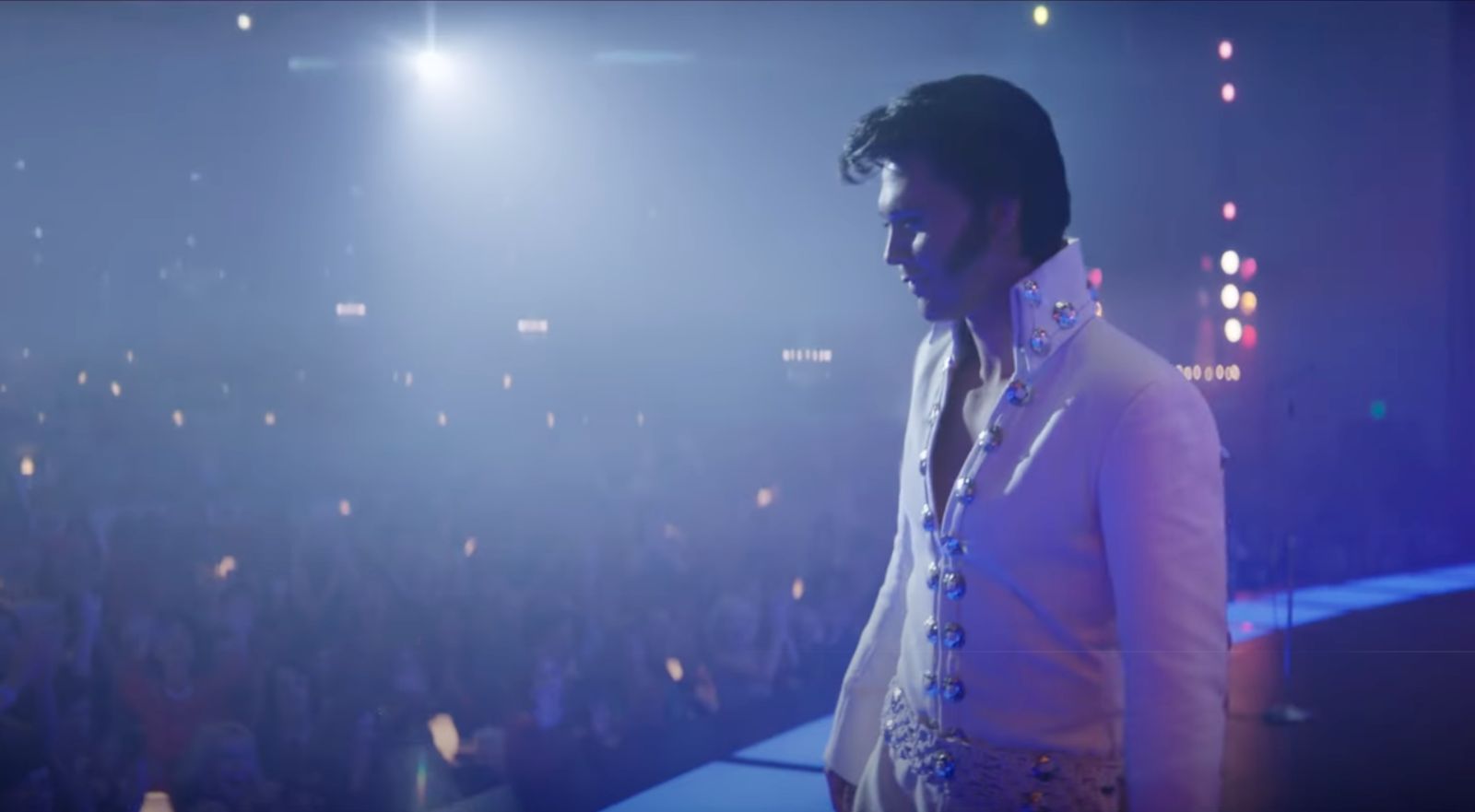
There is a lot of responsibility when telling the story of a beloved historical figure. Director Baz Luhrmann has accepted this challenge in depicting the life of perhaps one of the two most famous and celebrated musicians in human history.
Elvis provides a look at the rise and fall of music legend Elvis Presley (Austin Butler) as seen and told through the eyes of his business manager Colonel Tom Parker (Tom Hanks). We see Parker discover Elvis as tales of the young white kid who sings negro music spread in the southern music circuit reach the carnival worker’s ears to the man orchestrating Presley’s rise to fame to his unprecedented stardom, against the backdrop of the evolving cultural landscape and loss of innocence in America.
Elvis was a performer with an enchanting, flashy style that catapulted him to the top of the music industry. It’s only right that a film depicting his life story have an equally enthralling and distinctive style, but in going full bore on his unique auteuristic style, Baz Luhrmann ultimately distracts from the story that should be at the center of this film. His trademark fast past editing, cuts, and overall frenetic style is ramped up to 10 during the film’s opening moments, unfortunately to the point where Elvis is moving so fast in a montage style where it becomes almost incoherent. Elvis Presley is one of a handful of celebrities to have become so famous and have a life story filled with so much drama that he became elevated into a myth and so the telling of his life story feels best told in a way that meets such gravitas, drama, and intrigue. Luhrmann’s directorial choice to instead meet Elvis’ performance audacity with directorial audacity of his own feels like a missed moment that undercuts what the film could have been.
That’s not to say Luhrmann’s distinct style and choices are a total bust as the film’s energetic presentation and flashy visuals work in terms of its hair and makeup, costuming, and production design. Whether it’s Elvis’ distinct look in style and dress and physical appearance, Hanks’ transformation into Col. Parker, or the period accurate depiction of the four decades covering Elvis’ life. The costuming pops off of the screen and transports the audience into the crowd of Elvis’ various performances complete with his shiny shoes and jumpsuits.
Also aiding in the immersive feel of the recreations of Elvis’ performances is the performance of Austin Butler, a strong one that is every bit the star turn that has been buzzed about for months in the lead-up to the release of Elvis. Butler not only achieves the look, but encapsulates the cadence of speech, vocal tonation, and onstage presence of the rock legend. He also succeeds in making Elvis’ tortured experience as a megastar caught between maximizing his earning potential and remaining true to his musical roots and aspirations as he also dealt with the issue of his fame and fortune effecting his personal life and his family around him. Elvis’ slow descent at the end of his life is a sad tale and Butler captures emotionality of the deterioration and what leads him there. Tom Hanks’ performance as the film’s narrator and puppeteer of Elvis’ career and life are serviceable and the legendary actor does a good job of at least making his turn as Parker believable and the antagonistic element of his onscreen presence and place in the story work. The expectation that Hanks would undoubtedly offer a virtuouso performance perhaps unfairly colored what some in the audience anticipated seeing and thusly hampers what is an ok showing from him.
Elvis is a flashy, quick paced film that mostly avoids feeling like it ever drags alone despite having a run time slightly over two and a half hours. We are treated with a glimpse of the life of an Uber-celebrity whose fame and fortune are in constant conflict with his humanity and love for the music that have him the former two elements of his life. Director Baz Luhrmann even treats us with some tidbits on the turbulent era of the 1960s and the effect that the changing times had on Elvis and the black southern origins of the rock n’ roll music that he was crowned King of due to his race. Despite touching on these topics, it doesn’t feel as if the story delves too deeply into them despite such a long runtime. Butler and Hanks’ performances provide some emotional heft despite the film shunning some thematic depth in favor of flash. Elvis isn’t a bad film by any means, it just ends feeling as if it didn’t reach the full potential that it possessed.
Image: Warner Bros.

